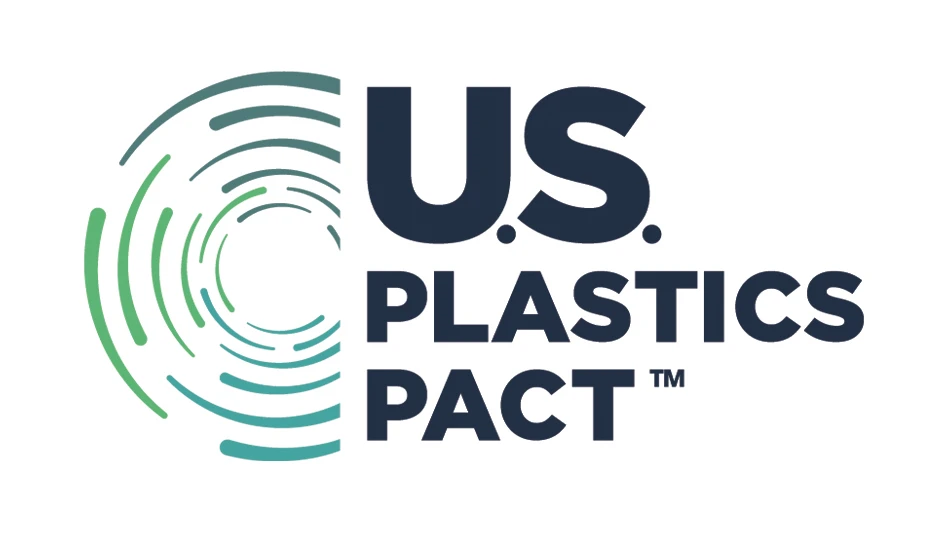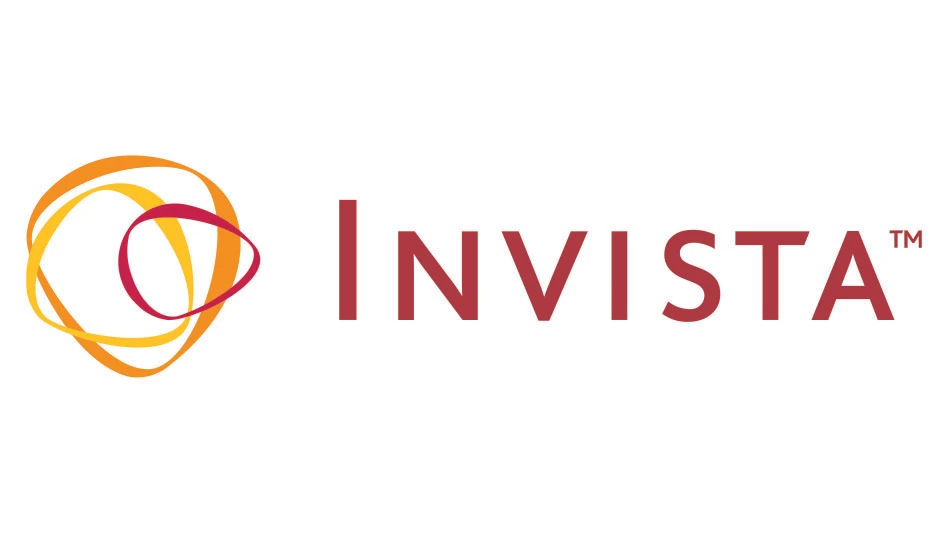 Björn Grufman, BIR president and Metallvärden CEO Björn Grufman, BIR president and Metallvärden CEO |
During the more than 20 years he has built Sweden's M.V. Metallvärden AB into an international scrap recycling and trading company, owner Björn Grufman has endured ups and downs.
The setbacks he has overcome include having a scrap yard figuratively stolen from under him in Russia. Grufman's ability to rebound, however, means he has rebuilt the company while also rising through the officer ranks of the Bureau of International Recycling (BIR), Brussels.
In both those roles, Grufman has been proud to watch the scrap recycling industry emerge from the shadows and back loading docks of the corporate world into a respected and prominent part of a global economy focused on sustainability.
Out of Thin Air
Grufman is a graduate of the Stockholm School of Economics who, prior to enrolling there, spent three years in the Swedish Army.
Upon graduating from the School of Economics, Grufman says, "I knew that I wanted to work internationally and was fortunate to begin working for SAS (Scandinavian Airlines)."
|
Tracking Scrap Usage After setting a new record of around 1.4 billion metric tons in 2010, global steel production continued its climb in the first half of 2011. In comparison with the January-June period in 2010, world steel production increased in total by 7.6 percent to 757.8 million metric tons in 2011. The biggest increase was recorded by Turkey with growth of 21.3 percent to 16.4 million metric tons, and positive results also were posted by most of the biggest global steel producers, including China (up 9.6 percent to 350.5 million metric tons), the EU (up 4.1 percent to 93.4 million metric tons), the USA (up 4.3 percent to 42.7 million metric tons) and Russia (up 5.3 percent to 34.6 million metric tons). As stated in the half-yearly report issued by the Bureau of International Recycling (BIR), it is also worthy of note that the increases in steel scrap usage in China (up 14.7 percent to 49.8 million metric tons), the EU (up 5.7 percent to 53 million metric tons), the USA (up 8.2 percent to 27.7 million metric tons) and Turkey (up 27.1 percent to 14.5 million metric tons) were greater than the respective upturns in crude steel production. The higher scrap consumption in China together with a decline in imports could be a first effect of the country's new Five Year Plan, which calls for the use of more scrap, and especially from domestic collections. For Japan, it is interesting to note that the very small decline in steel scrap usage (down 0.3 percent to 19.1 million metric tons) was slightly lower than the decrease in crude steel production (down 0.9 percent to 54.1 million metric tons).
|
Part of what Grufman worked on was raw material shipping. "Someone there thought I would make a superb trader, so I pursued that and went to work for the Axel Johnson Group," Grufman says, referring to the trading house of a family-owned Stockholm-based conglomerate.
He eventually focused on iron ore trading and worked for the Axel Johnson Group until 1983. "The company had changed by then, and I felt it was time to leave," Grufman says.
Together with a business partner, Grufman started a scrap metal company that was centered on operations at the port of Murmansk, Russia. After building the business for five years, the duo was met with a challenge they did not see coming: "It was stolen from us," Grufman says of the scrap metal and the space from which the company had operated in Murmansk.
Russian judges and courts consistently ruled against Grufman and his partner's legal challenges, and the end result was a near-bankruptcy and a business partner too discouraged to continue in the industry. (Grufman credits his Swedish bank for being understanding of the situation, helping him avoid bankruptcy.)
Unlike his business partner, Grufman stayed in the industry, built upon the assets and goodwill remaining from his first business and began operating under the name Metallvärden (roughly "MetalValue" in English).
Grufman has concentrated on trading within Scandinavia, but he says that the creation of the EU and the euro zone has allowed the company to look beyond that. Also, the export markets of Asia have caused Metallvärden (www.Metallvärden.se) to greatly expand its reach. "Probably 25 to 30 percent of our sales are now to the Far East," he says.
In playing a role in the recycling industry beyond Scandinavia, Grufman says he has been helped by his commitment to the BIR. Within the organization, Grufman has served on committees and divisions and in officer roles of increasing responsibility, culminating in his role as president, which he assumed at the May 2011 convention. (See sidebar, "An Eager Ambassador," on the right.)
As a company, Metallvärden also has expanded beyond scrap trading. It now operates a melting facility that produces secondary aluminium alloys and ferro-titanium alloys. On the recycling collection and processing side, the company now also manages an electronics recycling plant in Stockholm.
A Diverse Portfolio
Grufman is quick to note that Metallvärden is not the largest scrap recycler in Sweden, being superseded by Stena Metall, which is as much as 10 times larger. But Metallvärden has taken several necessary steps to remain competitive, including accessing capital by going public in 2010 and by diversifying its operations.
Scrap processing and trading remains at the heart of the company's operations. Grufman says Metallvärden processes and trades about "10,000 metric tons of nonferrous scrap and from 70,000 to 100,000 metric tons of ferrous scrap monthly."
As much as 20,000 metric tons of the ferrous scrap goes to Metallvärden's ferro-titanium alloys production plant each month, still leaving a majority of that metal to be traded.
The company has been expanding the line of products it makes at its melting facility to include not only aluminum and ferro-titanium products but also lead bullion and semis. "I'm always trying to expand the value chain and getting into lead semis was a way to do that," Grufman says.
Metallvärden makes lead bullion that can be used to make bullet wire, which goes into ammunition produced in Scandinavia and in Germany. The company's lead products also are used to make lead sheet, lead antimony, anodes for chrome acid and lead shielding for the nuclear industry. "Using 1 millimeter of lead can block as much radiation as 30 centimeters of concrete," Grufman says, adding that the shielding is used at medical buildings and dentists' offices among other places.
|
An Eager Ambassador Just three years after he entered the scrap recycling business full-time, Björn Grufman of M.V. Metallvärden AB, Stockholm, attended his first Bureau of International Recycling (BIR) event. Grufman says he was made to feel welcome immediately, including by long-time members and officers such as Larry Sax, who currently serves as a Recycling Today Global Edition editorial consultant. "Since then, I've been to most of the spring conventions and Autumn Round-Tables," he comments. After Sax encouraged him to become involved in the BIR's Nonferrous Division, Grufman got involved with the BIR as well as with the Swedish Recycling Industries Association, the former Nordic Recycling Federation and Eurometrec (European Metal Trade and Recycling Federation). As he has advanced through the ranks of BIR and other organizations, it has allowed him to think about wider industry issues beyond the scope of Metallvärden's day-to-day business. Among his observations:
|
The company's melting facilities are not in Stockholm but in the Swedish town of Lesjöfors, occupying space in a former steel mill building.
Metallvärden's trading offices are in Stockholm, as is the electronics recycling facility the company operates. The electronics recycling model offered by the company involves steps beyond what many other recycling companies offer.
"We are very much into computers," says Grufman. "Working on the front and back end, we can help deliver some 3,000 computer units ready-made to a customer over the weekend and take the old ones away."
He continues, "Second-hand computers—tested, working units—are today a big commodity in Eastern Europe and Northern Africa," adding that Metallvärden works closely with allies to ensure things are done in full compliance with international recycling and shipping standards.
"In collaboration with computer makers such as Dell, when a company is through with a lease, we work in close cooperation with all concerned. We keep them well informed about where the refurbished units are going," Grufman says. "A 3-year-old computer might be sold into Africa for about 80 euros. There also is a lot of scrap from this business; about 10 to 15 percent of the equipment is recycled at our plant."
Service at the Center
Despite considerable investments in processing and metals production, Grufman says that philosophically Metallvärden must bear in mind that it is a service company.
"We most often market ourselves as a service company," Grufman states, pointing to the corporate slogan "Expertise with responsibility."
On the expertise side, Grufman says, "We are trying to educate our suppliers to do the right thing and our customers how to utilize the products we have to offer them."
Knowledge or expertise is a two-way street, he adds. "Of course, knowledge is exchanged—they have things they can teach us. The R&D departments of aerospace companies or other consuming companies are tremendous storehouses of metallurgical knowledge."
Metallvärden is organized to pass along this knowledge, connect it with the application at hand and achieve maximum profitability for all involved. "Most of our staff are from the metallurgical industry," says Grufman. "We have a fairly deep knowledge of our customers' needs, and we know for them what is poison and what is not," he says of scrap consumers.
For scrap suppliers, "We may know that a certain alloy has extra value because of one key consumer. Our specialty is consumer knowledge to place the material at the right destination. Others may not look upon this material the same way nor add the value," he states, meaning they are not able to pay the best price to their scrap supplying customers. "If you can identify the alloying elements in some of your ferrous scrap, you can upgrade it."
On the service side, metallurgical service is one of the categories cited by Grufman, along with secondary raw materials collection and processing and price hedging. "We are active on the London Metal Exchange, so we can handle a form of risk that most of our customers cannot."
Additionally, Grufman says, "We provide transportation and logistics services and sometimes financing as well. Service is the central idea of our company, and that's the way we try to market it."
Directions to Grow
Grufman says he sees ways in which Metallvärden and the recycling industry overall can continue to grow in the near future.
Among the things he says he has been heartened by is a wider recognition of recycling during the previous 10 years or so.
"The recognition of our industry is very important," Grufman says. "In Sweden, everybody wants to be green—it's fashionable. In the last 10 years, other business owners have started to look upon us as a green industry, not as someone dirty who came in the night hours to pick up something akin to garbage."
He continues, "We are evolving from an industry that formerly served our clients without being seen. Purchasing managers formerly wanted our containers hidden in a corner and we had to come at night when it's dark. That has changed; now I have meetings with company directors of environment, and they want clean containers spotted near the main entrance, possibly billed as a 'recycling station.' They want full statistics of how much they've recycled for their sustainability reports."
This recognition has probably helped scrap materials begin to get declassified as waste within the Basel Convention framework, which has been a priority for the BIR for some 35 years, according to Grufman.
For Metallvärden, specifically, opportunity is presenting itself in a variety of forms. "Our company is likely developing more melting facilities," Grufman states.
He also envisions "deeper growth in Scandinavia, with Metallvärden becoming more of a Nordic company with a presence in Norway and other nations near Sweden."
Grufman adds, "I foresee that we must open up Eastern Europe. It will take some time before [some of the Baltic and Eastern European nations] are a significant home for scrap generators or scrap consumers."
Grufman says he is reaching an age where he hopes to back away from some day-to-day operations and step down from CEO to "more of an advisory role."
He concludes, "The next rung of managers are about 10 to 15 years younger, and strategically it's time to push them to take the initiative while I become more of an advisor than an active trader or administrator."
The author is editorial director of Recycling Today and can be contacted at btaylor@gie.net.

Explore the January 2012 Issue
Check out more from this issue and find your next story to read.
Latest from Recycling Today
- NRC seeks speakers for October event
- LME identifies Hong Kong warehouses
- Greenville, Mississippi, launches aluminum can recycling program
- Cotton Lives On kicks off 2025 recycling activities
- Georgia-Pacific names president of corrugated business
- Sev.en Global Investments completes acquisitions of Celsa Steel UK, Celsa Nordic
- Wisconsin Aluminum Foundry is a finalist for US manufacturing leadership award
- MetalX announces leadership appointments






